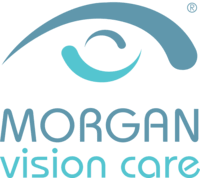
Sometimes, the signs are subtle—a child sits closer to the television, squints at a distance, or complains of headaches after homework. At Morgan Vision Care in Virginia Beach, we often see children who have been quietly dealing with eye problems. Many of them have myopia, or nearsightedness, and they may not even know it.
The good news? Early action and treatment can make a major difference. Taking care of myopia early helps your child now and lowers the chance of serious eye problems later.
Here’s how you can recognize the early warning signs.
How to Spot the Early Signs of Myopia
Recognizing the early signs of a vision problem can help prevent more serious complications later on.
If you notice any of these behaviors or symptoms, it's time to schedule a visit with our eye doctor to protect their vision health.
1. Squinting to See Distant Objects
If your child frequently squints while trying to see the board at school, watch TV, or spot faraway objects, they might be compensating for blurry vision. Squinting briefly narrows the eye’s focus, helping bring distant objects into sharper view, but it’s a clear hint that an eye exam is needed.
2. Sitting Too Close to Screens or Books
A classic sign of myopia is sitting close to the TV or holding books and tablets very near to the face. Children may instinctively move closer because nearby objects are much clearer than distant ones.
Analogy:
It’s like trying to read a street sign through fogged-up glasses—moving closer brings things into focus, but the underlying eye condition remains.
Eye strain and long periods of close-up work on digital devices without breaks can also worsen early symptoms.
3. Frequent Headaches or Eye Pain
When the eyes struggle to focus properly, it can cause not only headaches but also eye pain and fatigue, especially after school or screen time.
If your child often complains about sore eyes or frequent headaches, it’s time for a professional evaluation.
4. Difficulty Paying Attention in School
Children who can’t see clearly often struggle to pay attention in class. Vision-related learning difficulties can be easily misinterpreted as attention problems.
Untreated refractive errors like myopia can seriously impact school performance and confidence.
5. Tilting the Head or Covering One Eye
Tilting the head, covering one eye, or shifting viewing angles often signals an attempt to overcome blurred vision.
These habits suggest that one eye may be focusing differently than the other—which, if uncorrected, could lead to issues like a lazy eye over time.
How Morgan Vision Care Can Help Manage Childhood Myopia
At Morgan Vision Care in Virginia Beach, our pediatric eye exams check for early signs of myopia, other refractive errors, and overall eye health.
We carefully examine the retina, optic nerve, and other vital structures to ensure your child's eyes are developing properly.
Treatment options may include:
- Orthokeratology (Ortho-K): Specialized overnight contact lenses that gently reshape the cornea without the need for daytime glasses or contacts.
- Atropine Eye Drops: Low-dose drops to slow myopia progression.
- Multifocal Contact Lenses: Designed for both vision correction and myopia management.
Furthermore, regular exams can help us monitor for early signs of other conditions like diabetic retinopathy or eye changes linked to high blood pressure—both of which can first show up during a routine eye check.
Book a Pediatric Eye Exam at Virginia Beach, VA
Clear vision is essential for learning, confidence, and everyday adventures. If you've noticed any of these signs, early diagnosis and professional management are critical.
Schedule a pediatric eye examat our practice in Virginia Beach and take the first step toward protecting their lifelong vision.

